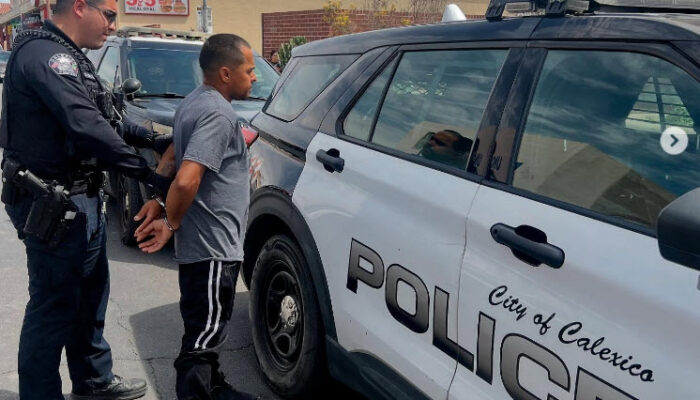Racial profiling remains a persistent problem in California, with Black, Latino, and other minority drivers and pedestrians disproportionately targeted for stops, searches, and use of force. Proving racial discrimination in policing requires careful documentation and strategic legal action. If you believe you were profiled because of your race, you may have grounds for a civil rights lawsuit.
At Steering Law, we specialize in fighting police misconduct and have successfully represented victims of racial profiling across Southern California. If you were unfairly targeted by law enforcement in Los Angeles County, Riverside, Orange County, San Bernardino, or San Diego, contact us immediately for a free case evaluation.
What Constitutes Racial Profiling Under California Law?
Racial profiling occurs when police stop, question, search, or detain someone primarily because of their race, ethnicity, or national origin—without reasonable suspicion of criminal activity. Common examples include:
- Being pulled over for “driving while Black or Brown” without a valid reason
- Being stopped and frisked in predominantly minority neighborhoods without cause
- Facing harsher treatment (handcuffing, excessive force) compared to white individuals in similar situations
While California passed the Racial and Identity Profiling Act (RIPA) in 2015 to track bias in policing, discriminatory practices persist. A 2023 report by the California Attorney General found that Black drivers were still stopped at 2.4 times the rate of white drivers relative to their population.
How to Prove Racial Profiling in a Lawsuit
Unlike other police misconduct claims, racial profiling cases often rely on patterns of behavior rather than a single incident. Key evidence includes:
1. Statistical Data Showing Disparate Treatment
Courts increasingly accept statistical proof that a police department or officer disproportionately targets minorities. This can include:
- Department-wide stop data (required under RIPA) showing higher stop rates for minorities
- Comparative evidence (e.g., white individuals in similar situations who were not stopped)
- Officer-specific records revealing a history of targeting people of color
For example, a 2021 UCLA study found that LAPD officers were more likely to stop and search Black and Latino drivers, even though white drivers were more likely to be found with contraband. Such data can be crucial in proving systemic bias.
2. Officer Statements and Behavior
Even without department-wide statistics, individual cases can succeed if the victim documents:
- Explicit racial remarks (e.g., “You fit the description of a suspect”)
- Inconsistent explanations for the stop (changing reasons suggest pretext)
- Aggressive treatment compared to non-minorities in similar situations
Body camera footage, witness statements, and police reports can all reveal discriminatory motives.
Challenges in Racial Profiling Cases
Despite strong evidence, these cases face hurdles:
1. Qualified Immunity Protections
Officers often claim they had “reasonable suspicion,” even if their real motive was racial bias. Overcoming this requires showing that their actions violated clearly established anti-discrimination laws.
2. Missing or Withheld Evidence
Some departments delay releasing bodycam footage or “lose” recordings that could prove bias. Immediate legal action is crucial to preserve evidence.
3. Difficulty Proving Intent
Since most officers won’t admit to racism, plaintiffs must rely on circumstantial evidence (e.g., statistical disparities, inconsistent justifications for stops).
How Steering Law Builds Strong Racial Profiling Cases
Our firm has successfully challenged discriminatory policing by:
- Obtaining and analyzing stop data to prove racial disparities
- Using bodycam footage to expose contradictory officer statements
- Working with civil rights experts to demonstrate patterns of bias
We’ve secured significant settlements for victims of racial profiling, including cases where officers:
✔ Stopped clients based on racial stereotypes
✔ Used excessive force during discriminatory detentions
✔ Falsely claimed “reasonable suspicion” to justify stops
What to Do If You’ve Been Racially Profiled
1. Document Everything
- Write down the officer’s name, badge number, and exact words
- Note whether they gave a reason for the stop (and if it changed)
- Get witness contact information
2. Preserve Evidence
- Request bodycam footage immediately (departments often delete it)
- Save your clothing or vehicle if damaged during the encounter
3. Contact a Lawyer Immediately
- Racial profiling cases require fast action to secure data and footage
- Even if you’re unsure about suing, a free consultation can clarify your rights
Southern California Residents: Don’t Let Profiling Go Unchallenged
If you were targeted because of your race in:
- Los Angeles County (LAPD, LASD)
- Orange County (Anaheim PD, OCSD)
- Riverside or San Bernardino Counties
- San Diego (SDPD, Sheriff’s Department)
…you may have a claim. Steering Law offers:
✅ Free, confidential case reviews
✅ No fees unless we win your case
✅ Immediate action to secure critical evidence
Key Takeaways:
- Racial profiling is illegal but remains widespread in California.
- Statistical data and officer behavior are key to proving discrimination.
- Act fast—bodycam footage and stop records may disappear.
- Steering Law has successfully fought profiling cases across Southern California.
Don’t wait—call Steering Law today or visit our website for a free consultation. Let us help you hold police accountable for discrimination.

Steering Law is a California-based civil rights and criminal defense firm led by Jerry L. Steering, Esq. The firm focuses on police misconduct cases, including excessive force, false arrest, malicious prosecution, contempt of cop incidents, and 42 U.S.C. §1983 civil rights actions, while also handling serious criminal defense matters. Steering Law is dedicated to protecting clients’ constitutional rights and delivering justice for individuals who have been wronged by law enforcement.
